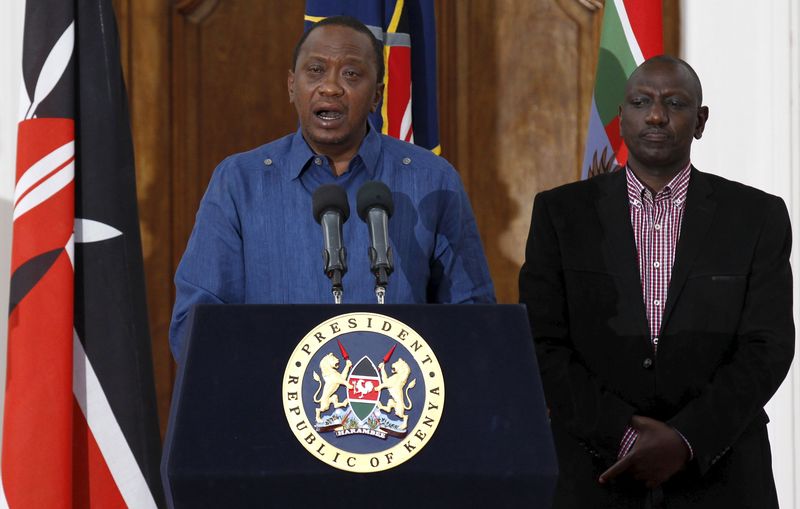NAIROBI (Reuters) - Kenya's deputy president has said there is "no room" for homosexuality in Kenyan society, the latest comments from an African government to anger activists and likely also to annoy Western donors who say gays are targeted on the continent.
William Ruto made the remarks at a church service on Sunday, the day U.S. Secretary of State John Kerry arrived for talks. The United States has been at the forefront of calls for gay rights in Africa and criticises anti-gay laws on the continent.
"The Republic of Kenya is a republic that worships God. We have no room for gays and those others," Ruto told a Nairobi church congregation in the national Swahili language, according to an online video posted by Kenyan broadcaster KTN.
Speaking to Reuters on Monday, Ruto's spokesman Emmanuel Talam confirmed the deputy president's remarks, adding: "The government believes that homosexual relations are unnatural and unAfrican."
Like most of sub-Saharan Africa, Kenyan society is strongly religious and socially conservative. Anti-gay remarks by African leaders often win public support but puts them at odds with Western donors who provide vital economic and other support.
When neighbouring Uganda passed a law last year that toughened prison sentences against gays, Kerry described it as "atrocious" and compared it to anti-Semitic laws in Nazi Germany. The law was later struck down by a court.
The United States is a valuable donor to Kenya, providing annual aid of almost $1 billion, some of it to help the security forces but much of it to support treatment of HIV/AIDS victims.
Homosexuality is illegal in Kenya and has been so since colonial British rule, which ended in 1963.
"SPREADING HATE"
Kenyan activists condemned Ruto's remarks on social media.
"Kenya's deputy president joins an important tradition by Africans in power to spread hate in church on a Sunday," Binyavanga Wainana, a prominent Kenyan writer who is openly gay, said on his Twitter (NYSE:TWTR) account.
Last week, Kenya's High Court ruled that a prominent gay rights group could register as a non-governmental organisation after a board overseeing such applications refused its request.
Activists praised the ruling but the attorney general has appealed against it.
Ruto, who took office in 2013, is being tried on charges of crimes against humanity at the International Criminal Court in the Hague for his alleged role in stoking ethnic violence after Kenya's 2007 presidential election. He denies the accusations.

President Uhuru Kenyatta had faced similar charges, but they were withdrawn last year.